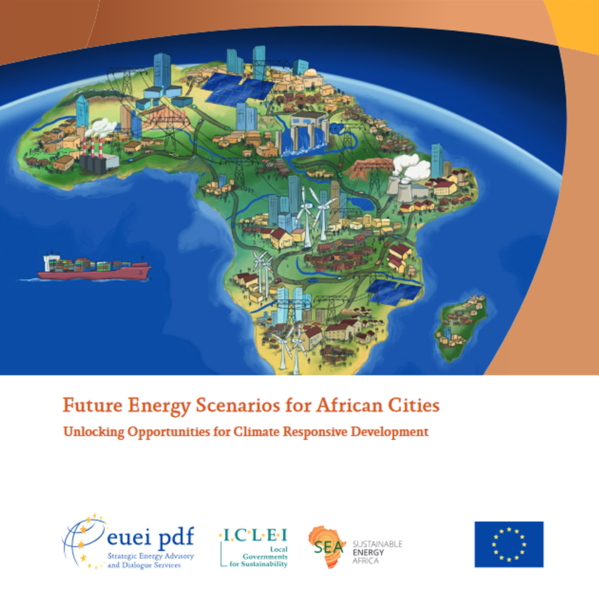



The relevance of this study comes about as cities consume up to 80% of total energy production and release 75% of global CO2 emissions. With Africa’s urban population on the rise, the question of how to provide sustainable energy to the continent’s cities is ever more important.
The study sketches out policy options for unlocking climate responsive development in each of the four scenarios, and provides recommendations for a wide group of stakeholders, ranging from African public institutions at the national and municipal level to the private sector, civil society and the international donor community.
One of the scenarios described in the study envisages ‘growth-driven climate action’, where strengthened local governance, rising incomes and education lead to public support for sustainable urban development, including renewable energy generation at the city level. This positive outlook is opposed by another scenario, predicting ‘weak enforcement of ambitious climate commitments’. Two additional cases analyse the future of African cities under the aspects of ‘reliance on a centralised energy model’, and ‘technology-enabled growth’.
The study was officially launched as a knowledge sharing showcase piece at the Vienna Energy Forum on the 10th of May 2017 and is available for downloading on the EUEI PDF website free of charge.
The study was developed by the EU Energy Initiative Partnership Dialogue Facility (EUEI PDF) in collaboration with two partner organisations, ICLEI Africa and Sustainable Energy Africa (SEA) and under the guidance of the consulting firm Atkins International. The EU Energy Initiative Partnership Dialogue Facility (EUEI PDF) is a multi-donor programme financed by the European Commission, Austria, Finland, Germany, Italy, the Netherlands and Sweden.
Read more and download the report here.

